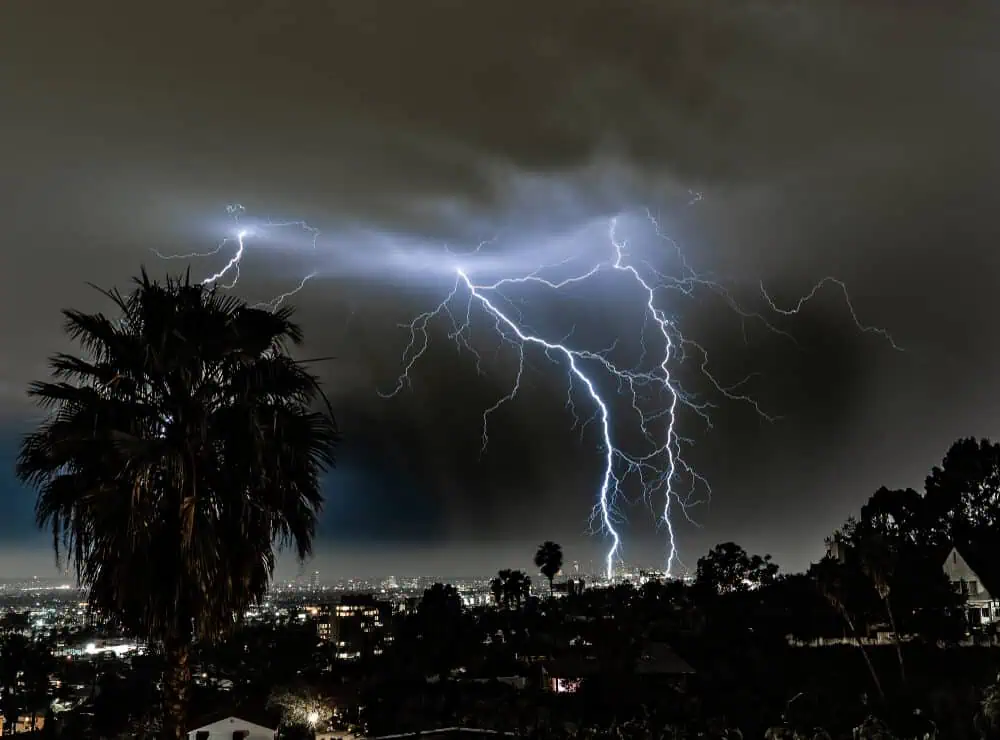When considering storm-resistant commercial roofing systems, several options provide durability and protection against harsh weather conditions. To protect your commercial building from the specific type of extreme weather found in your area or to meet cool roof requirements, contact a commercial roof expert for a consultation.
Storm-Resistant Roofing Materials for Commercial Buildings
What type of roofing material is the best option for your local climate? While there is no hurricane-proof roof, some materials offer more durability than others. Here are thoughts about each type of roof material and its ability to stand up against impact resistance and wind damage.
Metal Roofing Materials
Metal roofing is highly resistant to strong winds, hail, and other severe weather conditions. Metal roofing is fire-resistant and can last several decades with proper maintenance. Metal roofs are also 100% recyclable. It’s important to use high-quality metal, however, as many hurricane-prone areas have high salt content in the air, and low-quality metal roofing won’t last as long.
TPO (Thermoplastic Polyolefin) Roofing
TPO roofing membranes are known for their strength and flexibility. Like metal roofing systems, TPO roofs can withstand high winds and hail. TPO roofing material is also resistant to UV radiation, chemical exposure, and high temperatures.
EPDM (Ethylene Propylene Diene Monomer) Roofing
EPDM roofs are durable and resist damage from hail storms and withstand wind speeds consistent with severe weather. They are known for their longevity, elongation properties, and low maintenance requirements.
PVC (Polyvinyl Chloride) Roofing
PVC roofing membranes offer excellent resistance to fire, chemicals, and severe weather conditions. This roofing material is also highly durable, energy-efficient, and withstand severe weather conditions and high winds when properly installed.
Modified Bitumen Roofing
Modified bitumen roofs consist of asphalt and rubber modifiers, making them flexible and durable. They provide excellent resistance to heavy rain, hail, wind, and UV radiation. They are typically installed with multiple plies to provide a robust roofing system.
Other Roofing Materials
Those aren’t the only roofing materials suitable for extreme weather conditions. For high-pitched roofs, high-quality asphalt shingles are excellent options, when properly installed. Architectural asphalt shingles feature multiple layers with durable grit embedded in their surfaces, making them durable against debris. Concrete tiles, clay tiles, and slate roofing tiles are also suitable against strong winds, provided the roof pitch is suitable.
Green roofs, which are covered with vegetation and other natural materials, provide insulation and protect the underlying roofing materials from temperature fluctuations and weather damage. They can also mitigate storm water runoff from torrential rains and require minimal maintenance.
You may also consider high-density coverboards to protect the insulation and provide a durable surface for the roof membrane. If you are in an area that may be impacted by hail, check with your insurance provider, because they may reduce your insurance rates for including a glass mat gypsum cover board or high density polyiso cover board.
What Roofing Material Stands Up Best to the Extreme Weather in Your Area?
When selecting a storm-resistant roofing system for commercial buildings, it’s essential to consider factors such as the building’s location, climate, budget, and maintenance requirements. Additionally, proper installation and regular inspections are crucial for ensuring the effectiveness and longevity of the roofing system.
To learn about the best roofing materials for your region or how to remain Title 24 compliant, contact Nations Roof, a premier commercial roofing contractor serving the U.S. Also, contact Nations Roof if your commercial building needs a full roof replacement following a recent severe weather event. Building owners have consulted with Nations Roof for decades and rely on our expertise to install roof systems that stand firm against the elements.
Key Takeaways: Best Roof Materials for Extreme Weather
- A metal roof system can be highly resistant to extreme weather conditions.
- Single-ply roofing systems like TPO, EPDM, PVC and other synthetic materials can typically withstand high winds. Some offer more resistance to hail damage than others.
- Modified bitumen roofing material has multiple layers and is known in the roofing industry as providing excellent storm resistance against high winds.
- Green roof systems can withstand temperature fluctuations and can mitigate stormwater runoff.
- Consider a high density cover board to protect your roofing investment.
- Consult an expert commercial roofer in your area to find the best roof system for your unique situation.




